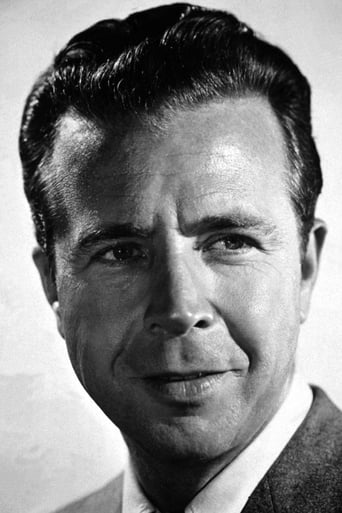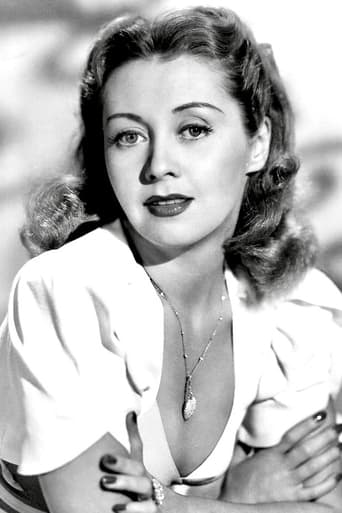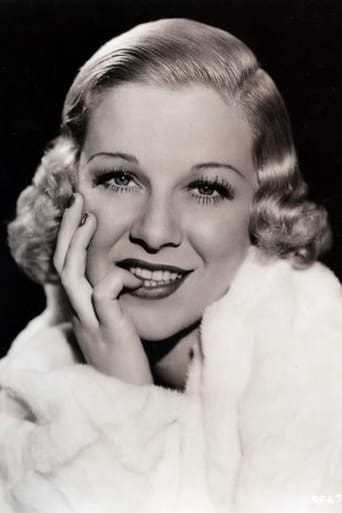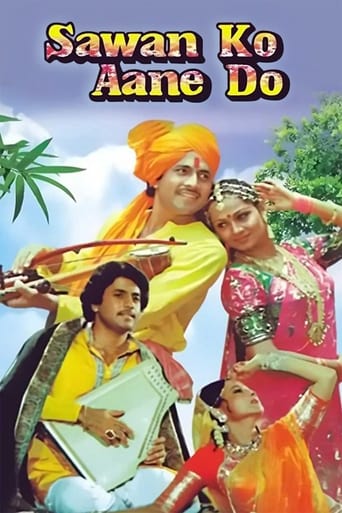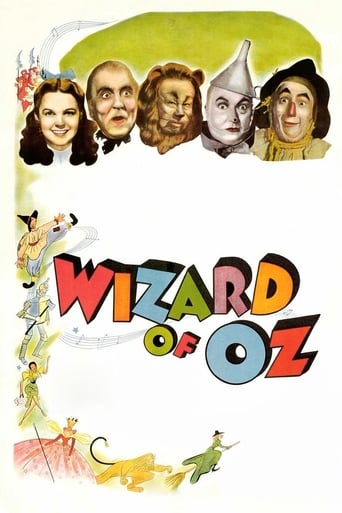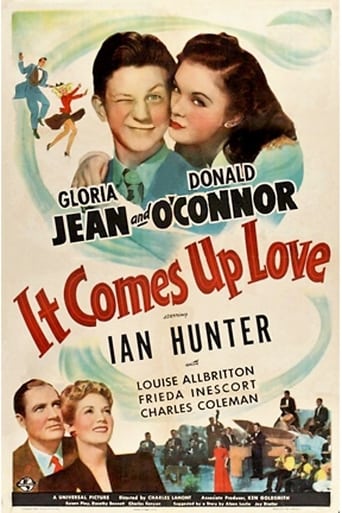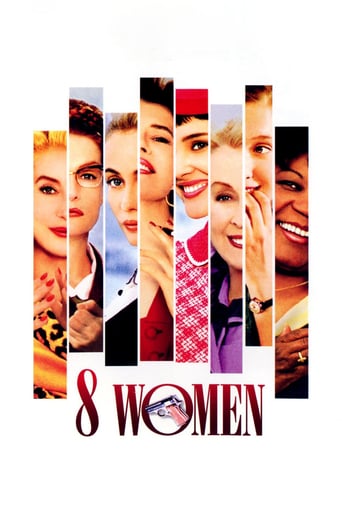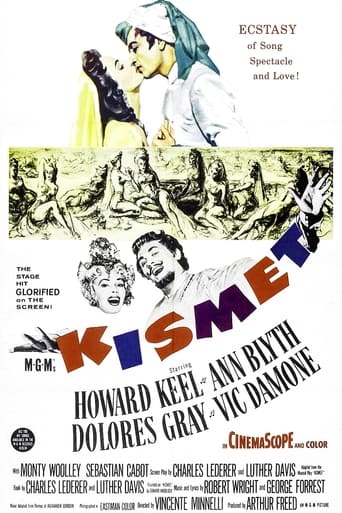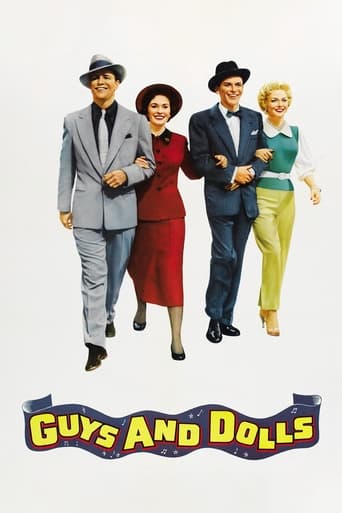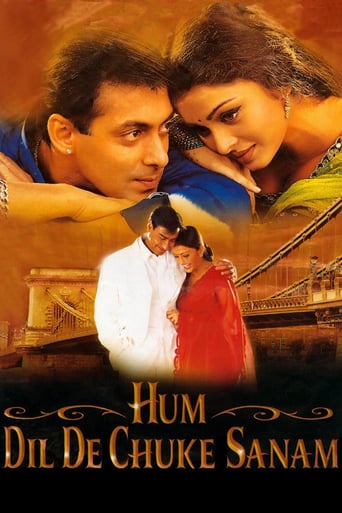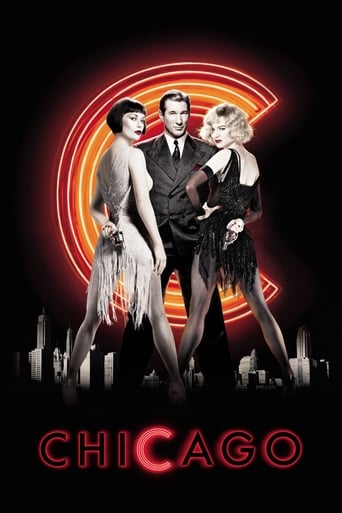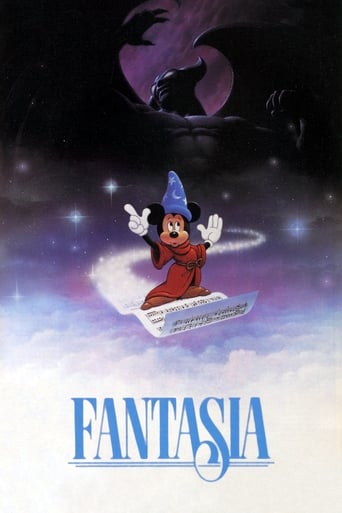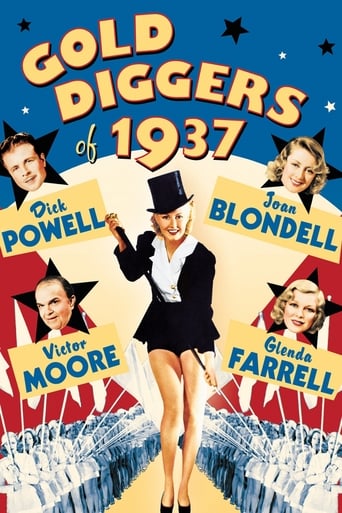
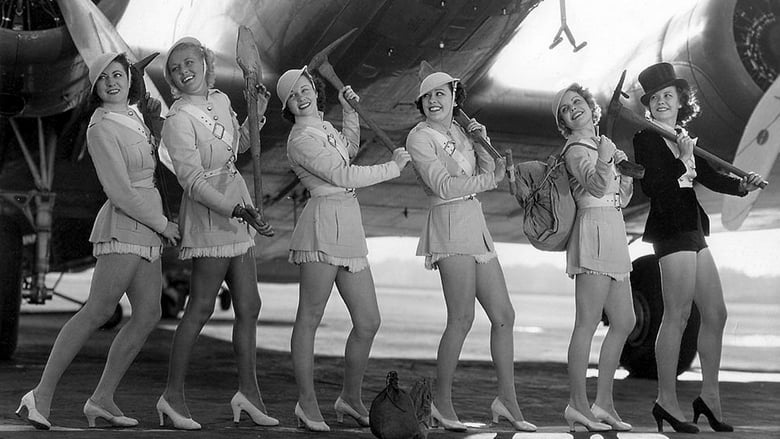
Gold Diggers of 1937 (1936)
The partners of stage-producer J. J. Hobart gamble away the money for his new show. They enlist a gold-digging chorus girl to help get it back by conning an insurance company. But they don’t count on the persistence of insurance man Rosmer Peck and his secretary Norma Perry.
Watch Trailer
Cast


Similar titles
Reviews
Rossi (Dick Powell) sells a life insurance policy worth $1 million dollars to JJ Hobart (Victor Moore). He then sticks beside him to ensure that he doesn't kick the bucket. If he does, Rossi loses his income and he needs it to settle down with Norma (Joan Blondell) who has scammed a job as a receptionist for the insurance company. At the same time, a couple of JJ's managers who have spent all of his finances need the insurance policy money to stage the next show and scheme to bump him off with the help of Norma's friend, Gen (Glenda Farrell). Things work out for a happy ending and there are musical numbers thrown into the proceedings.Unfortunately, none of them are particularly good. We are subjected to that irritating form of spoken-word singing a couple of times. Joan Blondell is the offender. However, she is funny at the beginning of the film when going for a job as a receptionist. Glenda Farrell steals every scene that she's in and changes from a wise-cracker to a cold-hearted cow to the gold-digger with a heart of gold. Dick Powell is good in the lead role and has some funny scenes, eg, he is a salesman that hates sales. Good for him. The cast are enjoyable to watch......except Victor Moore. He is an unfunny, irritating man with a flat head who looks mentally retarded and has the most annoying, whiny, slurry speech pattern. I rather hoped that the baddies would get their way with him.The music numbers were a bit of a let-down for me coz I don't like war themes with soldiers and marching and all that crap but if you like marching and flag-waving, then you'll probably enjoy a couple of the set numbers including the finale. Busby Berkeley has done much better than this. Overall, the main cast make the film watchable (NOT Victor Moore) and it's OK. Nothing more.
The high point of Gold Diggers of 1937 is Busby Berkeley's staging of "All's Fair in Love and War," an all-American dose of surrealism, like a militarized, scrubbed and bleached opus by Bunuel or Dali. It hypnotizes and amuses, mixing silliness and wisdom, finesse with crudeness. And it never hurts to have at one's disposal such raw materials as a superior Harry Warren melody, and in this case, a better-than-average Al Dubin lyric.The other songs in this light-dark comedy fare less well. The two main entries by E.Y. Harburg and Harold Arlen ("Speaking of the Weather" and "Let's Put Our Heads Together") are routine and interchangeable; when they merge in a poolside extravaganza, it's hard to tell where one leaves off and the other comes in. Harburg and Arlen also contributed the cynical "Life Insurance Song," performed only fragmentarily by Dick Powell, but it's quite sharp ("You'll get pie in the sky when you die, die, die ."). Sadly, Warren and Dubin's splendid "With Plenty of Money and You" is deprived of a big splashy production number all its own.The plot is actually not bad for movies of this type. Various bad guys, in cahoots with gold digger Glenda Farrell, try to profit from sick old theatrical producer (Victor Moore) by taking out a million dollar life insurance policy on him (innocently sold to them by Dick Powell) and then putting him into unhealthful situations which will maximize the chances of his quick and convenient demise. The proceeds will finance their new musical, which will be a big money- making hit. It's a nasty scenario when you think about it, spun out with a pretty good share of racy double entendres.Powell, in his 4th year of warbling wholesomely for the brothers Warner and sporting an unflattering mustache, looks like he's just about to roll back his eyes and shout "Enough!" but he manages to deliver the twinkle, the vitality and the sonorous vocals that made up his screen persona. Joan Blondell as his love interest is also beginning to show signs of wear. Her voluptuous chorine days are drawing to a close, but she can still pull off the act; as usual, she doesn't even attempt to sing and merely speaks her lyric lines. Victor Moore, Broadway veteran and seasoned character comedian, brings great nuance and even pathos to a role that might have been played as sheer low-minded slapstick by a lesser actor. Lee Dixon as one of Powell's fellow insurance salesmen comes off as a rather eccentric supporting actor in search of a screen personality until it is revealed that his primary talent is tap dancing, which he displays with great energy in the poolside number. But when you see the truly amazing footwork of the dancers in the 1929 Gold Diggers of Broadway (fragments of which are included as an extra feature on the Busby Berkeley Collection Volume 2), you realize that Dixon by comparison was an eager but clumsy beginner.So this late entry in the gold diggers series isn't as bad as one might expect. It would have been better, perhaps, if some of the performers had been more youthful and less sick and tired of playing the same types year after year and if there had been more socko musical numbers.
GOLD DIGGERS OF 1937 (Warner Brothers, 1936), directed by Lloyd Bacon, is the third musical in the yearly-titled series with the choreography by Busby Berkeley. Released in theaters as a Christmas attraction of 1936, I find it to be a notch below the 1935 edition and no where near as good as the one of 1933, but still acceptable entertainment, highlighted with a show-stopping musical finale.The story begins at a convention in Atlantic City where Andy Callahan (William B. Davidson) of Good Life Insurance Company tries to encourage his salesmen to go out and sell. Rosmer "Ross" Peek (Dick Powell) and "Boop" Oglethorpe (Lee Dixon, in his feature film debut) are his two top insurance salesmen who lead the men into singing their way to the train station for their destination being New York City. While on the train, Boop becomes acquainted with a Southern gal named Sally (Rosalind Marquis); Ross meets up with Norma Perry (Joan Blondell), a stranded showgirl accompanied by Genevieve Larkin (Glenda Farrell), who in turn meets Monty Wethered (Osgood Perkins, father of Anthony Perkins), a crooked backer of JJ Hobart Productions. Rosmer helps Norma by offering her a position as his secretary at the insurance firm. As for Genevieve, she joins forces with Monty's assistant, Mr. Hugo (Charles D. Brown), another chiseler who has pocketed and lost most of Hobart's investments. They want to get the 59-year-old theatrical bachelor producer, JJ Hobart (Victor Moore) to take on an insurance policy by having Genevieve arrange to have Norma get Ross to meet up with him. After Hobart passes the million dollar insurance policy physical with Ross hired as his agent, Monty and Hugo try their best to see that Hobart meets with an "accident." But when all else fails, Hobart eventually does land in the hospital after Genevieve has a change of heart and tells him the truth. It is then up to the younger crowd, who feel that Hobart might die, to do away with the crooks Monty and Hugo and help put Hobart's upcoming show together.Songs featured include: "The Life Insurance Song," "Speaking of the Weather" and "Let's Put Our Heads Together" By E.Y. Harburg and Harold Arlen; "With Plenty of Money and You" and "All's Fair in Love and War" by Harry Warren and Al Dubin. Dick Powell, with his pencil-thin mustache, sings "With Plenty of Money and You" before the opening titled cast and credits. He reprises the hit money song to Blondell later on in the story as he accompanies her home from their dinner date. "Speaking of the Weather" also gets to be heard twice, first in the insurance office sung by Powell to Blondell, later sung by guests at the pool and garden party with Lee Dixon doing his "puppet on a string" tap-dancing solo. Also sung during the party sequence is "Let's Put Our Heads Together" (a pretty tune introduced by Powell). Of the songs presented, "All's Fair in Love and War" is the only number not part of the storyline. It's a ten minute staged production, part of the JJ Hobart Revue, compliments of Busby Berkeley and his display of chorus girls marching in military fashion and flag waving. This well choreographed finale was nominated for Best Dance Direction, and one of the few highlights of the film.Victor Moore, a pudgy bald character actor of numerous comedies, comes off best here. Besides being an amusing comedian whose catch phrase if, "Life begins at 59," the scene that stands out most is the moment he gets sentimental in telling gold-digger Genevieve (Farrell) of he being a lonely old man of the theater whose life has now been fulfilled by her presence in making him feel young again, and now wanting to marry her. Even Farrell manages to present herself as a gold-digger with a heart of gold, and she carries this particular scene well without making it appear silly. As for Powell, his character at times appears to be more foolish than funny, but makes up for it during the romantic and singing spots.THE GOLD DIGGERS OF 1937 became available on DVD in 2008, and can bee seen broadcast on Turner Classic Movies. Look fast for a young Jane Wyman in the early portion of the movie with one line, "Happy days are here again" as she and other show girls watch a parade of insurance men entering the train, and Susan Fleming (Mrs. Harpo Marx) in a small role as a secretary billed as Lucille. (***)
Busby Berkeley's films are the most concentrated tease in the history of movies. it is over an hour into 'Gold Diggers of 1937' before we get any real meat - an astonishing, gossamer-erotic Gatsby-orgy filmed in the manner of Riefenstahl, all glowing Aryan bodies with their glistening mammillae, and idealised framing; with the kind of multi-character cutting of a song Paul Thomas Anderson would borrow for 'Magnolia'; and a magnificent extended tap-dance leading to an agreeable Berkeley fancy, the huge male dancer hand-standing over a bridge of female arms like a fly evading a web - after two tantalising duets featuring Dick Powell and Ruby Keeler that threaten to explode into full-blown imaginative hysteria, but are cut short. Of course, this is the Berkeley method - coitus interruptus - and our deferred gratification is mirrored in a plot where the hero must prove himself worthy of the heroine before he can have her; the final extravaganza thus functions as a sexual/marriage rite, concluding in a consummating kiss. And what an extravaganza it is - less overt than '1935', but full of fetishised phallic implements, swirling clitoral circles and rocking chairs. Against a sharp black background, our phosphorescent heroes play out their immemorial rites, the heterosexual struggle linked to war (and not to the men's advantage). This idea leads to some striking sequences, including a priapic cannon with a pair of adjacent ball-piles, and a scene of 'trench' warfare, where the skirted female soldiers in 'No Man's Land' triumph through a blitzkrieg of firearms and perfume. There is no way actual sex could ever be better than this.It is traditional in celebrating Busby Berkeley movies to denigrate the plots as amiable, necessary time-passers before the visual disruption. I always find them highly entertaining, and '1937' has one of the best: an excellently plotted farce combining gold-diggers, an inept salesman, a hypochondriac theatre impressario and his corrupt sidekicks. This fun plot is noticeable for two things - the extraordinary sexual honesty that persists in spite of Messrs. Hays' and Breen's best efforts: this is a Depression where a woman must prostitute herself for a meal, never mind a marriage; as Glenda Farrell says 'It is so hard to be good under the capitalistic system' (!). The film opens with Powell insisting on the link between financial security and marriage, and the glistening sea of gold moistening the opening credits certainly have a sexual force.More enjoyable is the portrait of the two heels who try to kill their boss having lost all his money in a Stock Exchange scam, hoping to cash in on his insurance. this kind of plot is quite shocking in such a genre, and we are expected to laugh at various unsuccessful murder attempts (and we do: the whispers for help when they hurl JJ into the pool are hilarious). These are not cartoon villains but the kind of middle-aged, middle class men we might meet in film noir or the novels of Simenon, men whose souls have been made hard by routine, and the American insistence on success. They would have made good collaborators.In 1933, the 'Gold Diggers' poignantly recorded the effects of the Depression: things haven't really improved four years later, but, significantly, the idea is emerging that if you throw enough razzmatazz, noise, bands and empty phrases at a problem it will go away. it's not for nothing that the two leads are an insurance man and an actress. Powell is amiable in a silly moustache, sillier name and a cheerful pessimism; Blondell is bubbly and serious and lovely as ever; the revelation, however, are Glenda Farrell, convincingly transforming from cynical modern woman to accomplice of scoundrels to loving wife; and Victor Moore, as the inimitable, whining, lonely JJ.


